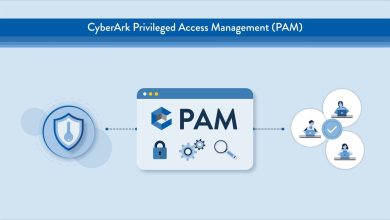PSONO Study: Sweden, Singapore Are Most Prepared for Data Security Threats
Only Two Countries From Asia Made the List of Most Prepared Nations

A new study by PSONO analysed 54 countries to identify which ten are the most prepared for data security threats in 2024.
The research aimed to evaluate each country’s cybersecurity readiness by examining several key factors:
- Global cybersecurity index
- Number of accounts exposed in data breaches
- Searches for “How to Create a Strong Password” per 100K people
- Number of cybersecurity professionals
- Each country’s Digital Competitiveness Ranking.
Sweden tops the ranking with a composite score of 98.6, making it the most prepared country for data security threats in 2024. It has a moderate number of cybersecurity professionals at 1.36, supplemented by significant public interest in secure practices, as seen in its high search volume for “How to Create a Strong Password,” with 585.5 searches.
Singapore Takes Second in PSONO Study
Singapore ranks second with a score of 90.5, punching above its weight despite its smaller population. It has the highest density of cybersecurity professionals, with 7 experts, and a strong cybersecurity infrastructure. With 747 searches for strong password tips, it’s clear that the public is highly engaged in securing their data.
Germany, in third place with a score of 86.7, sees massive public interest in cybersecurity, with over 4.4 million searches for password-related queries, more than any other country. Despite having fewer cybersecurity professionals per capita, Germany’s awareness and proactive public interest keep it well-prepared for future challenges.
Denmark comes in fourth with a score of 83.5, driven by high public engagement—more than 3,500 password-related searches people. Although it has fewer cybersecurity professionals per capita, Denmark’s strong policies and digital infrastructure ensure it’s well-equipped for data threats.
The Czech Republic ranks fifth with a composite score of 79.7. The country is doing well in terms of cybersecurity professionals and public engagement, with a solid number of searches for password security, signalling a growing awareness of data security practices.
Malaysia Ranks Seventh in PSONO Study
Kenya ranks sixth with a score of 68.1. While it has a high cybersecurity index score (98.6), there’s room for improvement in public awareness, with only 56 searches for strong passwords. Kenya is building its cybersecurity capacity but still needs to expand its workforce and raise public engagement.
Malaysia follows in seventh with a score of 55.4. Despite a high cybersecurity index, public interest and the number of professionals per capita are lower, which signals that while the infrastructure is in place, more work must be done to increase preparedness.
Despite a high cybersecurity index of 99.6, Greece ranks eighth with a score of 50.3. The country’s lower ranking is due to a smaller cybersecurity workforce and moderate public engagement, showing that although policies are strong, there’s a need to strengthen both its workforce and public awareness.
Finland, in ninth place with a score of 48.9, stands out with one of the highest densities of cybersecurity professionals, but a slightly lower cybersecurity index of 96.1 keeps it from ranking higher. However, public interest in cybersecurity is strong, with over 1,500 password-related searches.
Finally, Portugal rounds out the top ten as determined by PSONO with a score of 41.3. While it has a strong number of cybersecurity professionals per capita, public engagement is lower, with fewer searches for password security, indicating a need to boost public awareness alongside its existing infrastructure.
“When it comes to protecting yourself from data security threats, it’s crucial to focus on a few key areas: public awareness and professional support,” said a representative from PSONO. “Countries with a higher density of cybersecurity professionals per capita and strong public engagement with practices like creating secure passwords tend to be better prepared to handle cyber threats.”
The PSONO representative added: “It’s important to regularly update your security practices, such as using strong, unique passwords and ensuring that both individuals and businesses alike have access to the right expertise in cybersecurity. Staying aware of the latest threats and best practices can go a long way in keeping your data safe.”
To access the complete PSONO research, please follow this link.




